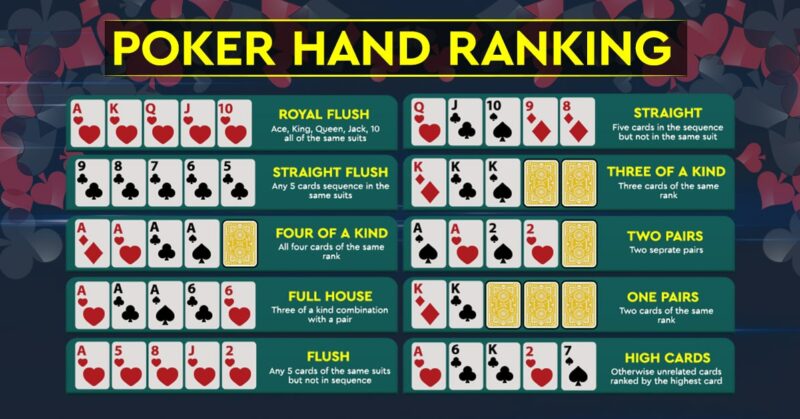Poker is a skill, strategy, and chance game. While luck plays a part in short-term results,
long-term success in poker frequently depends on intelligent decision-making and
psychological strength. Patience is a vital psychological quality that significantly impacts a
player’s success. In this talk, we will look at the importance of patience in winning Poker
Sequence and how this virtue helps long-term success in a game where impulsivity can
result in huge losses.
What are Poker Sequences?
The term “poker sequences” refers to the succession of hands, actions, and choices that
occur throughout a poker game. It includes the game’s strategic flow, from the opening card
deal to the climactic clash. A player’s ability to make well-thought-out judgments, react to
changing conditions, and eventually outmaneuver opponents is required for successful poker
sequences. Patience is essential in navigating these sequences because it involves strategic
decision-making, emotional control, and the ability to capitalize on favorable possibilities
while reducing losses throughout a poker game.
The Nature of Poker:
Poker is more than just a card game; it is a game of information, observation, and decision-
making. Patience, the capacity to tolerate waiting or delays without becoming frustrated or
agitated, is essential in poker. Unlike many other games, poker encourages a methodical,
careful approach to rash decisions.
Making Strategic Decisions:
In poker, patience is directly linked to strategic decision-making. Before moving, a patient
player analyzes the situation, evaluates opponents, and considers probable consequences.
This systematic approach aids in avoiding impulsive judgments that might result in unneeded
losses. Patience in poker is waiting for the appropriate opportunity to capitalize on
advantageous circumstances. This might imply folding marginal hands, avoiding the
temptation to chase losses, or waiting for the best moment to strike. The capacity to practice
restraint is crucial to a player’s overall performance.
Observation and data collection:
Patience permits players to learn more about their opponents. A patient player will examine
opponents’ playing styles, habits, and actions over time. This knowledge becomes a
significant advantage, allowing the patient player to make better judgments. In contrast,
impulsive players may respond rapidly without fully comprehending their opponents’
strategy. Patience will enable you to collect data, discover trends, and exploit flaws in your
opponents’ gameplay.
Mental Control:
Poker is a very emotional game. Winning and losing may elicit intense emotions; emotional
regulation is critical for long-term success. Patience is essential in avoiding dynamic tilt—a
condition of irritation or irresponsibility that can emerge following a string of defeats. Patient
players are better prepared to deal with poker’s inevitable volatility. They can take losses
with grace, avoid emotional decisions, and stay focused on the long-term aim of profitability.
Money Management:
Patience may be used beyond the poker table to bankroll management. Successful players
recognize the value of saving funds for the correct opportunities. Patience minimizes
impetuous wagers that can quickly drain a bankroll, helping players cope with poker’s
inherent volatility. A patient approach to bankroll management guarantees that a player can
withstand both winning and losing streaks, putting them in a position for long-term success
rather than short-term volatility.
Adaptability and versatility:
Poker is a dynamic game that necessitates flexibility. Patient players can modify their plans
in response to the game’s changing dynamics. Patience allows players to adjust without
abandoning their primary strategy when faced with aggressive opponents, tight players, or
unpredictable styles. Impulsive players may fail to adapt, adhering to a single tactic
regardless of changing conditions. Patience creates adaptability, essential for success in the
ever-changing poker scene.
Conclusion:
Patience is more than a poker advantage; it’s a strategic necessity. Patient players manage
the game’s complexity with a calm and measured approach, making educated judgments
that lead to long-term success. The importance of patience in successful poker sequences
can be seen in every aspect of the Poker games, from strategic decision-making and
information collecting to emotional control and flexibility. To increase their prospects of long-
term success at the poker table, aspiring poker players should realize the profound
importance of patience and nurture it alongside their technical talents.

